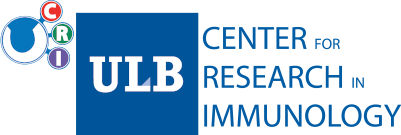Description of the research topics
The laboratory has a long standing interest in the study of post-trancriptional control of gene expression.Our recent projects include :
- Understanding the regulation of mRNA expression controlled by AU-rich elements
AU-rich elements (ARE) are short nucleotide sequences present in mRNA 3’ untranslated regions (UTR) which are important post-transcriptional regulators of mRNA translation and stability. Originally described as elements controlling genes involved in mammalian immune responses, AREs have been shown to be present in about 10% of the mRNA population and are cis-active elements conserved throughout evolution from yeast to humans. A wide variety of AER-binding proteins have been shown to interact with AREs. Our work is focused on understanding the molecular mechanism by which the ARE-BPs control the fate of their mRNA targets. First described as elements controlling genes involved in mammalian immune responses, ARE were shown to occur in about 10% of the mRNA population and to be evolutionary conserved cis-acting elements from yeast to human. A large variety of ARE Binding protein have been shown to interact with AREs. Our work is focused on understanding the molecular mechanism by which ARE-BP control the fate of their mRNA targets. - Understanding the mechanisms controlling mRNA translation under cellular stress conditions
The ability of living organisms to respond rapidly to changes in the cellular environment is essential for survival, and numerous strategies for dealing with cell stresses have evolved. In metazoans, translational regulation allows a quick response to environmental cues by controlling the production of protein from existing cellular mRNAs in a reversible manner and at relatively low cost. We are taking advantage of the Drosophila melanogaster model to study the molecular mechanisms controlling translation under stress conditions. We are particularly interested in understanding how several cellular stresses such as hypoxia can at the same time impose a global inhibition of translation while allowing the translational activation of small specific mRNA subsets.
